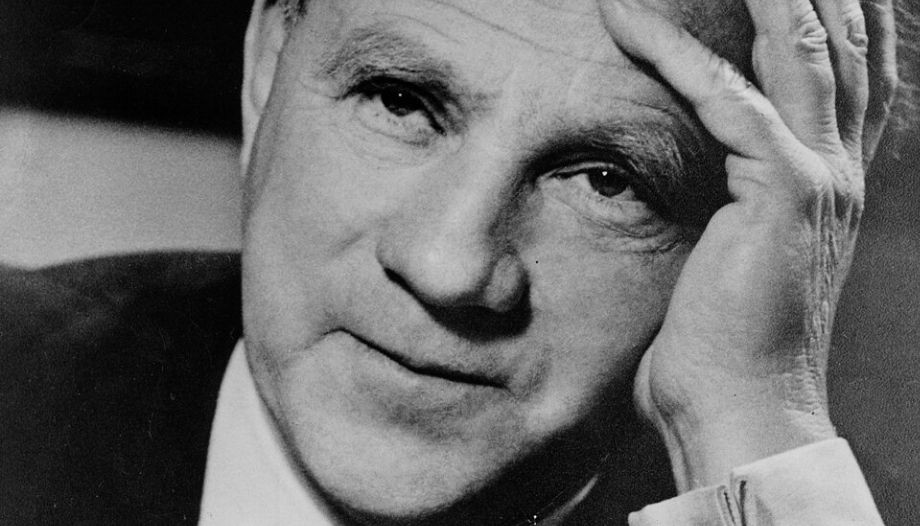The childhood beliefs that we have been taught, transmitted or inculcated about the existence of God by our parents, grandmothers, teachers, catechists,... are crumbling faster and faster in our society, as the Nothingness progresses destroying Fantasy in The Neverending Story.
In other words, when you listen to Ignacio Varela, Pedro García Cuartango, Fernando Savater,... and many journalists, intellectuals, artists, they give the impression that these fantastic stories are always surpassed by the cruel and devastating reality in which we live. These thoughts of people of “letters” are of scientists and can be of the same style or more radical, perhaps with more reason. Although they do not have to be.
For example, Werner Heisenberg, the famous physicist who established the Uncertainty Principle, said: “The first sip from the glass of natural science will make you an atheist, but at the bottom of the glass, God is waiting for you”.
Thinking about it coldly, the great arguments to demonstrate the non-existence of God do not exist either, they are pure ideas, intuitions. And the great theories and explanations of the universe are incomplete and always not fully demonstrated. So, is denying or affirming the existence of God a mere belief? Is there conclusive evidence in any direction, or is it an opinionated but non-scientific dispute? Is it an act of faith in both cases?
Clearly yes, since both Faith and Science, in this question, do not have a clear answer in any sense. Both the “religious stories” and the impossibility of empirically denying the existence of God, make us see that both believers and atheists do not have conclusive arguments about the existence or not of a creator being. Therefore, any disdain towards those who have a thought opposed to their own is striking, since to disagree does not mean to discriminate.
Having convictions does not give the right to offend
We can conclude that having convictions does not give us the right to offend those who think differently from our thoughts in any case, and even less if the evidence does not support it. And perhaps the religious person is the one who “pays the price” in this matter, since many times he is offended gratuitously for being a believer and thinking that there is a creator being, computer or maintainer of the reality in which we live, when neither this nor the opposite has been demonstrated.
We can say that these beliefs, in both directions, are supported by evidence, not proof, of the existence or not of God. They are not pure belief. They are reasoned and credible.
Theistic scientists
Albert Einstein, Arturo Compton, Louis de Broglie, Kurt Gödel, George Lemaitre, David Berlinski, Wernher von Braun, Gregor Mendel, Francis Collins, Werner Heisenberg, Louis Pasteur, Jhon Barrow, Tulane Frank Tripler, Richard Smalley, Freeman Dyson, Ramón y Cajal, John Eccles,They are scientists who, at some point, have shown that the order of the universe may have an intentionality or a purpose, which makes it “placed” and “ordered”. Let us call it God, programmer of algorithms or great harmonizing intelligence, but in something like this conclusive after their investigations. That is, they are men of intellectual rigor who conclude that there is something that harmonizes creation.
Catholic scientists
If it already seems a contradiction to say “theistic scientist» to say «Catholic scientist” is something that sounds wrong, probably because in Spain saying Catholic is like saying “fundamentalist”, but it is not so in the Anglo-sphere, since Catholic means universal, that is to say open to reality, so they are compatible terms.
The books published in recent years by Catholic scientists on this subject are not conclusive. The famous book “God. Science. The evidence” written by Michel-Yves Bolloré y Olivier Bonnassies, a bestseller in France, or “New Scientific Evidences for the Existence of God” by José Carlos González-Hurtado, They provide very interesting ideas, but as we have already said, they are not really “scientific proofs” but rather “scientific evidence” in one direction. The thesis of these books is based on the idea of Heisenberg, The more one delves into the explanation of how our world works, the clearer it becomes that it is not the result of chance.
IV Congress of the Spanish Society of Catholic Scientists
From October 2 to 4, the IV Congress of the Society of Catholic Scientists The event was organized by the Society of Catholic Scientists (Society of Catholic Scientists) Spain section, this year at the CEU San Pablo University. It was attended by a varied group of scientists from different disciplines, who enjoy the concern to deepen and better understand the world and to know how to better explain the relationship between Faith and Science. Enrique Solano, The president of the Society of Catholic Scientists of Spain (SCCE), wants to empower the Catholic scientist, so he says: “Our obsession is to show ourselves to society, so that the Catholic scientist is no longer invisible”.
Professor Javier Sánchez-Cañizares, physicist and theologian, who attended the congress, among many other things, says that the contingency and convergence of the universe can be a sign of God's action, without being a scientific proof, but an intuition. Just as the diversification, spontaneity and potential growth of nature can be an explanation that there is a personal God, who is not only creator but also loves his creatures.
——————
The Author
Professor and regular contributor to Vozpópuli.
—————-








